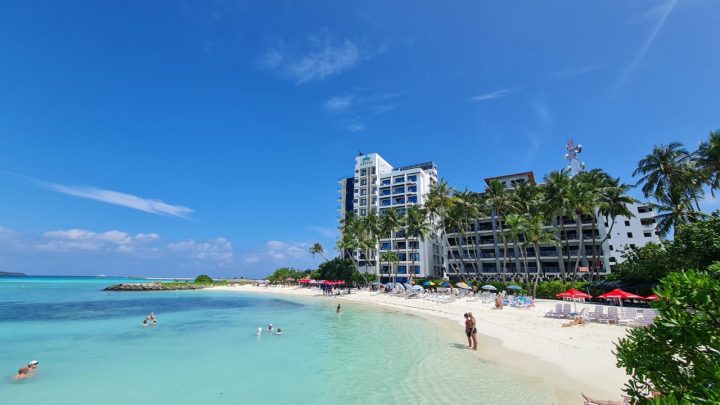
Maldives tourism in 2025: Growth in numbers and decline in revenue?
As we move into 2025, the Maldives—a destination synonymous with luxury, pristine beaches, and crystal-clear waters—continues to attract travellers from around the globe. While initial projections indicate a slight increase in tourist arrivals this year, the underlying narrative is less optimistic. Despite the increase in visitor numbers, tourism revenue is unlikely to see a corresponding boost, with policies that risk undermining the sector’s long-term success.
The Maldives’ tourism sector is the backbone of its economy, contributing significantly to national GDP. However, in 2025, several factors threaten the sector’s ability to capitalise on the increase in arrivals.
One of the primary challenges is the government’s decision to hike airport taxes, the Tourism Goods and Services Tax (TGST), and the green tax. Although the state intends these measures to increase revenue, they could potentially weaken the Maldives’ competitive advantage. Tourists, already paying premium prices for the Maldives’ luxury offerings, may find these additional costs off-putting, especially when compared to other destinations offering similar experiences at more attractive rates. It’s a known fact that the majority of travellers are saving for a few years to visit the Maldives, with only 15% having substantial financial resources that may not be significantly impacted by price factors.
The global tourism market is becoming increasingly competitive, with destinations like Thailand, Indonesia, Mauritius, Fiji, and the likes of Seychelles stepping up efforts to attract travellers. These nations are implementing policies to make their destinations more affordable, including tax breaks, improved infrastructure, and enticing promotional campaigns.
In contrast, the Maldives’ approach seems more revenue-oriented than visitor-focused. By prioritising short-term tax gains, the government risks pricing the Maldives out of the global luxury travel market. This is particularly risky in an era where tourists are more price-sensitive, balancing luxury experiences with value for money.
The rising costs aren’t just a burden for visitors—they also place strain on local tourism operators, resorts, guest houses, and service providers. Often, these businesses must absorb a portion of the additional taxes to maintain their competitiveness, further straining their already narrow profit margins. Over time, this could lead to reduced investments in facilities, services, and infrastructure, ultimately diminishing the quality of the Maldives’ tourism product.
For the Maldives to sustain its position as a premier destination, the government must adopt a more balanced approach. While taxation is an essential tool for revenue generation, excessive reliance on it without considering its impact on competitiveness can be detrimental. A long-term vision for the tourism industry should prioritise the following areas:
- Tax Reforms: Reassessing airport taxes, TGST, and green tax to ensure they remain competitive with rival destinations.
- Strategic Marketing: Enhancing global campaigns to reinforce the Maldives’ appeal as a unique and must-visit destination.
- Incentivating Investment: Providing incentives for local and international businesses to invest in sustainable and innovative tourism offerings.
- Sustainable and value-added: shifting from a volume-based model to one focused on high-value tourism, emphasising personalised, eco-friendly, and unique experiences.
While the Maldives has long been a sought-after destination, it is crucial to avoid complacency. Relying on incremental tourist arrivals without addressing the underlying challenges in revenue generation and competitiveness could harm the industry in the long run.
The government’s current policies, though perhaps well-intentioned, appear short-sighted. Without a clear strategy to balance taxation, affordability, and quality, the Maldives risks losing its edge in the global tourism market. It’s time for policymakers to rethink their approach, ensuring that the Maldives continues to flourish as one of the world’s most sought-after destinations for decades to come.






